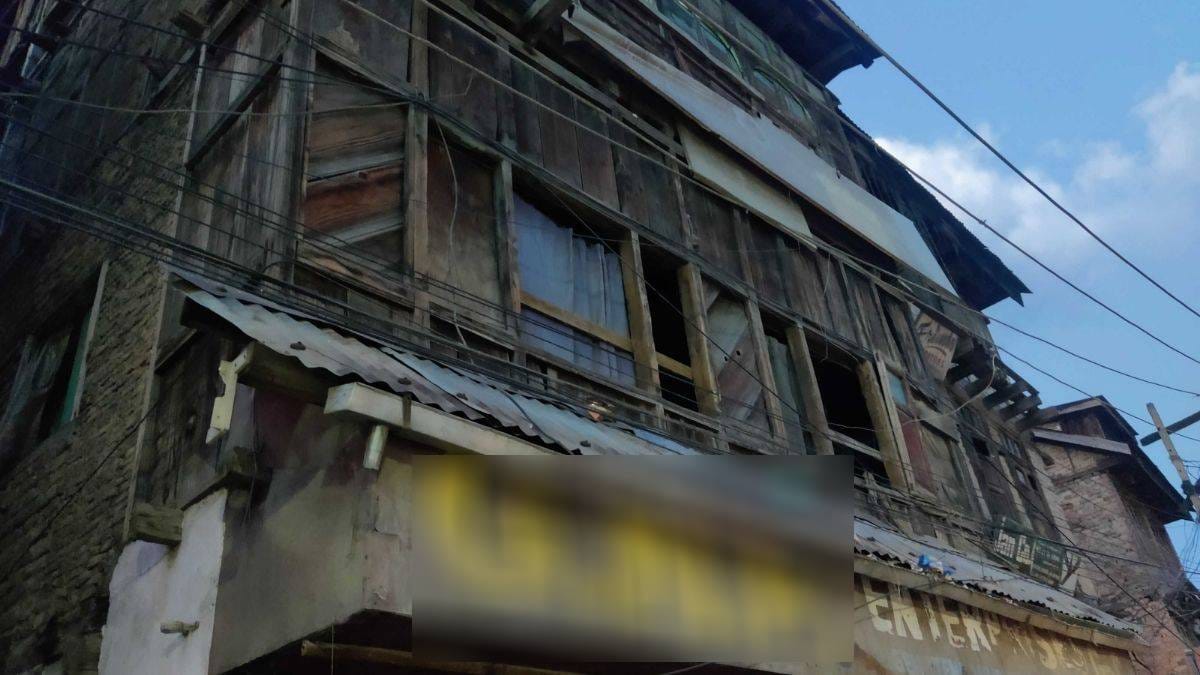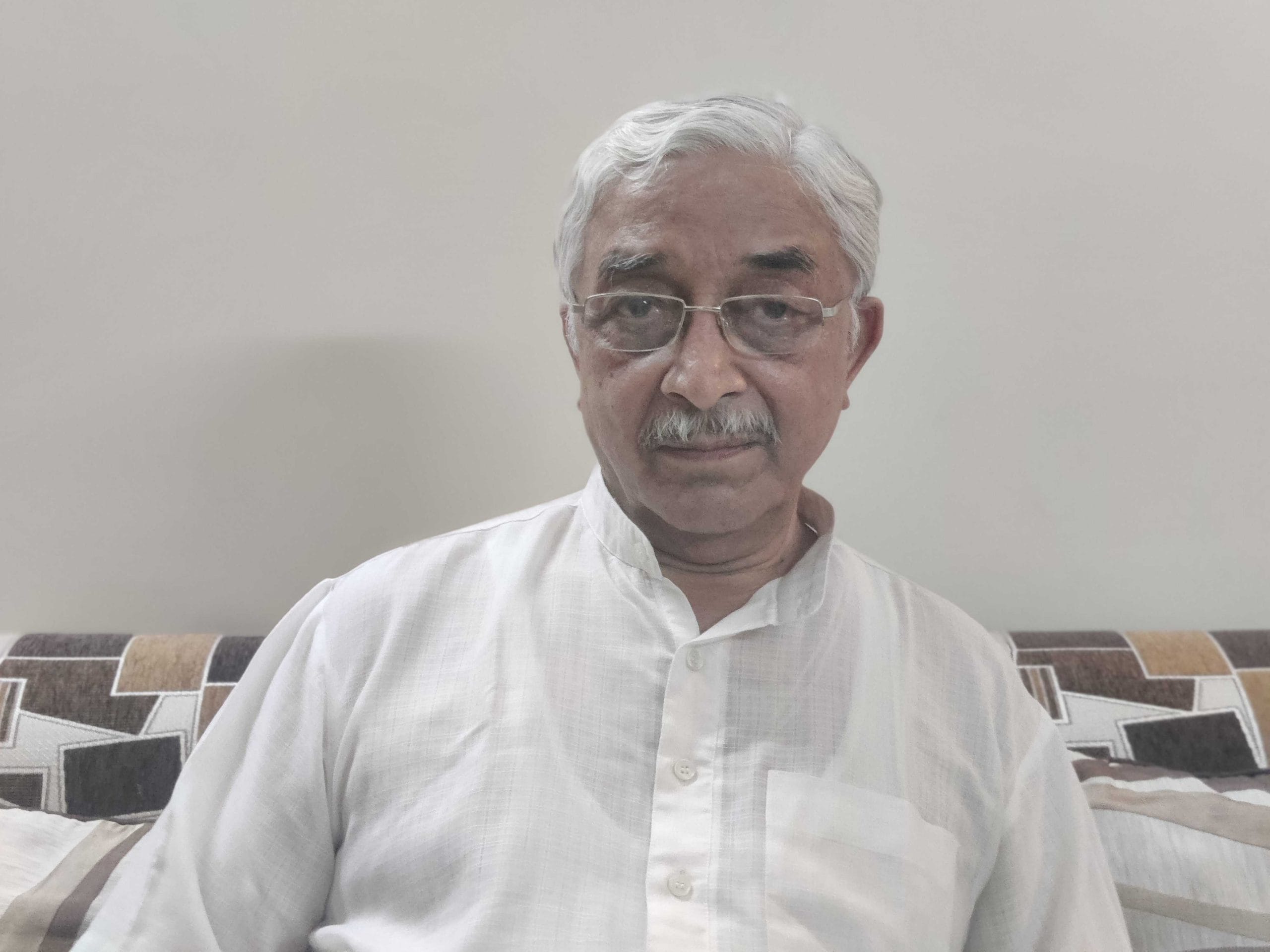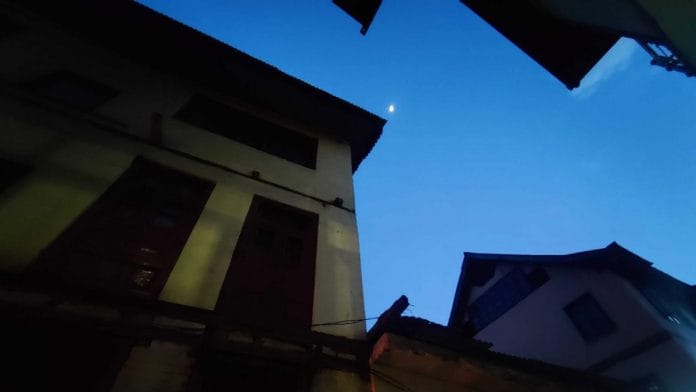Srinagar/New Delhi: He lives in a home with no windows, terrified to open the front door. Forty-seven years old now, Abdul Rashid’s eyes are burdened with a sadness that’s strikingly absent from photographs of younger years, infused into them by more than three decades lived in the shadow of violent death. Rashid’s brother was shot dead by terrorists from the Jammu Kashmir Liberation Front in 1990, forcing the family to abandon its business and flee their home in Srinagar’s Chota Bazaar.
Ever since The Kashmir Files began playing to packed theatres across the country, Indians have become intimately familiar with the story of Bal Krishna Ganjoo, the Kashmiri Pandit MTNL engineer who was brutally murdered by terrorists on 19 March 1990.
Almost no one, though, knows the story of Abdul Rashid, Ganjoo’s next door neighbour. It has been widely alleged that it were Ganjoo’s neighbours who gave up his hiding location to the militants. However, it turns out the Muslim neighbours being villanised today also lost their loved ones and homes. Even stranger, Rashid’s family was targeted because he was an undercover informer, working with the State and central police forces.
Also read: Engineer from Ranchi built drones for IS, revolutionised terror tech. Now he’s in Turkish jail
The other Kashmir Files: Story of Abdul’s family
Abdul came from generational wealth. He lived in a beautiful 22-bedroom house spread across 5,000 sq feet with his parents, elder brother and three sisters. His father owned a big kirana store (grocery shop) near their house. Life was good.
Abdul’s childhood was very different from what he could afford for his kids.
“Hum crorepati the. Aaj sadak pe aa gaye hain (we went from riches to rags),” he grimaces.
For him and the valley, things changed in 1989 when militancy peaked in Jammu and Kashmir. Abdul claims his family was against militants. Refusal to give money to militant outfits and not recognising their legitimacy made them targets, he claims.
26 October 1989 was the turning point. Abdul’s house was attacked. Windows broken with bullets and a grenade thrown in their angan to intimidate the family. On 27 October, they were attacked yet again. And on 11 November 1989, Abdul was shot while sitting in his shop. Two bullets went through and through: one piercing his right arm, the other his right hip.
Abdul shows ThePrint FIRs he had filed after these attacks.
“Hum dare nahi, lade inse (we didn’t get scared of the militants, we fought them),” he says. “If we had support, we could have done something for India.”

It was 16 February 1990, the day of the jummah. 32-year-old Mehraj, a lawyer by profession, had gone to buy vegetables in the afternoon when curfew had been relaxed. Ishfaq Maji Wani, a militant with JKLF allegedly shot him at the back of his neck and Mehraj bled to death. He is survived by two kids and his wife.
The family faced a complete social boycott following these attacks. Out of fear, nobody in the neighborhood wished to associate with them. So much so that no relative, friend or neighbor turned up at Mehraj’s funeral, or offered a kandha to him. The father did it all alone. Abdul was injured after being shot at three months ago.
“I was working for the Indian government as an informer, so the militants were always after my family. Sometimes, I feel like my rowdiness destroyed my whole family,” says Abdul.
Also read: Delimitation shows India’s democracy continues to struggle in the face of Kashmir challenge
Abdul the informer
Abdul shows ThePrint documents — one among them a pass from the DIG office recognising him as a worker and granting him a curfew pass. He claims to have worked for various intelligence agencies like the Central Bureau of Investigation and Intelligence Bureau as an informer till as late as 2006. And during this period, he faced multiple attacks. He claims to have been kidnapped and tortured for information by JKLF militant Hilal Begh. “I don’t know how I survived. I think Allah was just with me all the time,” he says.
Shortly after his encounter with Hilal Begh, Abdul and his family moved to Jammu and lived there till 2015.
In 1992, when the family was in Jammu, their Srinagar house was burnt to the ground. Since they couldn’t return, he claims, another family occupied their plot, built a new structure and are living there. “I am not contesting to get my old house back. I just want resettlement by the government. Look at the state we’re living in today. I gave up everything for the Indian cause,” he says.
Today, Abdul is without a job. Through some odd jobs, he and his wife are able to bring Rs 12-13,000 a month to their household, most of which goes into their children’s education.
Also read: Modi’s ‘sabka saath, sabka vishwas’ call needs more ‘prayas’ on ground, not another slogan
Ganjoo’s murder
Abdul claims they enjoyed familial relationship with the Ganjoo family. He used to visit Ganjoo’s house on a regular basis, and took Physics tuition from him. “Ganjoo ji was my teacher. He taught me Physics but also helped me with various other subjects like Math and Chemistry.”
Shiban Kishan Ganjoo, B.K. Ganjoo’s brother, however, maintains they shared a distant but cordial relationship. B.K. Ganjoo’s wife used to buy milk from Abdul’s family, which the latter used to deliver himself.
A month after Abdul had lost his brother, B.K. Ganjoo too was murdered in his house by militants. The family claims that their immediate neighbours pointed to where Ganjoo was hiding.
Shiban Kishan Ganjoo, BK’s younger brother, says that on the fateful night only Bal Krishan, his wife and younger daughter were home. And there’s nobody but the immediate neighbours who could’ve given up on their location. He shows ThePrint a video of the houses, right next to each other. The rooms upstairs are very close and the neighbours could have potentially peeked into each other’s houses. “Who else can see or know my brother’s location other than our next door neighbours. That’s how we know they gave up the location,” he tells ThePrint in New Delhi.

Bal Krishan knew that he was vulnerable and on the militants’ hit list. The family was begging Bal Krishan to leave the valley but he stayed back to fulfil his duties. In a Facebook post, Shiban Kishan Ganjoo recalls the last telephonic conversation with his brother, on the day that he was killed, “I cannot leave the valley for I am on an important job in the electronic exchange of Barazulla Srinagar… calls from the exchange are being tapped by militants… it is my prime duty to keep Barazulla working without any problem… it is the only link between the centre and the state.”
“Tragedy is militants were sent back by our immediate neighbours just by the side of the house, who had been given 20 kg rice, 10 kg atta and 5 kg sugar by Shri Bal ji, just a day before this murder since the family had nothing to eat. And these people became the killers,” Shiban writes in his Facebook post.
When asked why would a family who had lost their own blood at the hands of the militants later work for them, he says: “you cannot compare the two deaths. The militants and the family belong to the same religion. No one else could have given up Bal Ji’s location.”
Abdul denies the allegation. The night of Ganjoo’s murder, he says, nobody but his 18-year-old sister and mother were home. “They (Ganjoo’s family) don’t know what we were going through or what we were doing for the nation. Terrorism has no religion. Otherwise, why was our family targeted so much?”
Also read: Kejriwal gave BJP a ‘thug life’ response on Kashmir Files row — a template to counter hate
The mystery of force-feeding rice
The story of B.K. Ganjoo’s murder has been revived by The Kashmir Files, the blockbuster movie directed by Vivek Agnihotri. The movie has also added fuel to the fire of communal acrimony in India.
One particularly gory scene in the movie is when Bal Krishan’s wife is force-fed rice laced with her dead husband’s blood.
The veracity of this claim, however, remains unsubstantiated.
When ThePrint asked S.K. Ganjoo about this claim, he said “the family has never said any such thing.” He went on to say the makers of The Kashmir Files never approached the family for inputs, “it’s a fictional piece, must have been someone else’s story. It’s definitely not my brother’s,” he adds.
It is a myth that has been attached with Ganjoo’s murder in unsubstantiated reports earlier as well. And Ganjoo’s wife has never publicly spoken about that night or given any interview to any journalist.
ThePrint wrote to The Kashmir Files director Vivek Agnihotri to understand the reality around this episode shown in his film and where he sourced it from. To this, he replied with a letter written to him by B.K. Ganjoo’s daughter Deeksha praising his film and saying it has “helped the family heal.” He followed it up with this message: “I hope after reading this letter, you will give respect to the dead and their victim families. Everything is not journalism. There is something called empathy and humanity too. Let them heal.”
Sonia Jabbar, former journalist who worked on Jammu and Kashmir (1995-2010) and did many stories on the Kashmiri Pandits, says she had never heard this particular story (of force-feeding blood-soaked rice) until this year. “These stories of violence are awful enough without the exaggeration. Why embellish? Have we completely lost the ability to empathise with our neighbours and fellow Indians that unless someone spices it up, we find it impossible to respond? Perhaps those with some agenda feel, unless they exaggerate and make something totally horrific, it will have no impact, and so you get stories like this. What a shame that no one sympathises with the real tragedy of the people of Jammu and Kashmir — Hindus, Muslims and Buddhists — who have faced the brunt of a ‘war’ between India and Pakistan for over 70 years.”
(Edited by Anurag Chaubey)






